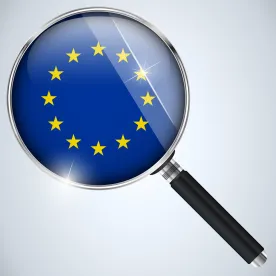Malta Taking Over the Rotating Council Presidency
The Presidency of the Council of the EU is rotating every six months among the EU Member States. The Presidencies are held by a group of three Member States which are rotating per semester. The Council’s Presidency is responsible to set up the agendas and to determine the most important issues to be addressed by the Council.
As of January 1, 2017, Malta is holding the Council’s Rotating Presidency for the first time. Malta has identified in its work priorities on the key policy issues they seek to discuss during their Presidency. The key priorities focus among others on migration, single market, security and maritime issues.
In addition to the Maltese Presidency priorities, it is worth noting that in December 2016, the three Presidents of the European Commission, European Parliament and Council (at the time held by the Slovak Republic) signed a Joint Declaration to determine the EU’s legislative priorities for 2017. The European Commission stressed with the entry of 2017 that it remains devoted to achieving a swift legislative progress on these priorities.
Legislative Proposals on Privacy of Electronic Communication
The European Commission published on January 10, 2017 legislative proposals aiming to reinforce the privacy of electronic communications. Specifically, the following proposals were published:
-
2017/0003 (COD): Proposal for a Regulation on privacy and electronic communications (including Impact Assessments and an evaluation report);
-
2017/0002 (COD): Proposal for a Regulation on data protection rules applicable to EU Institutions; and
-
COM (2017) 7: Communication on Exchanging and Protecting Personal Data in a Globalized World.
In terms of the ePrivacy Regulation, the European Commission is proposing an increased confidentiality, not only on the electronic communications, but also to the user’s online behavior and devices. Other elements of the directive include ensuring users consent when it comes to processing of communication content and metadata.
The European Parliament and Council of the EU are now set to review the legislative proposals.
Building a European Data Economy
On January 10, 2017, the European Commission also published another important policy priority incorporated in the Digital Single Market Strategy: the next steps to build a European data economy. These are outlined in a Communication on Building the European Data Economy (COM (2017)9). Three of the key areas the European Commission is addressing in the Communication are (i) data access and transfer; (ii) liability related to data-base products and services; and (iii) data portability.
In order to have further clarity on these matters, a public consultation was launched by the Commission to collect information by various stakeholders. The collected data is expected to assist the Commission in determining the necessary policy priorities in this context. The public consultation is open until April 26, 2017.




 />i
/>i

